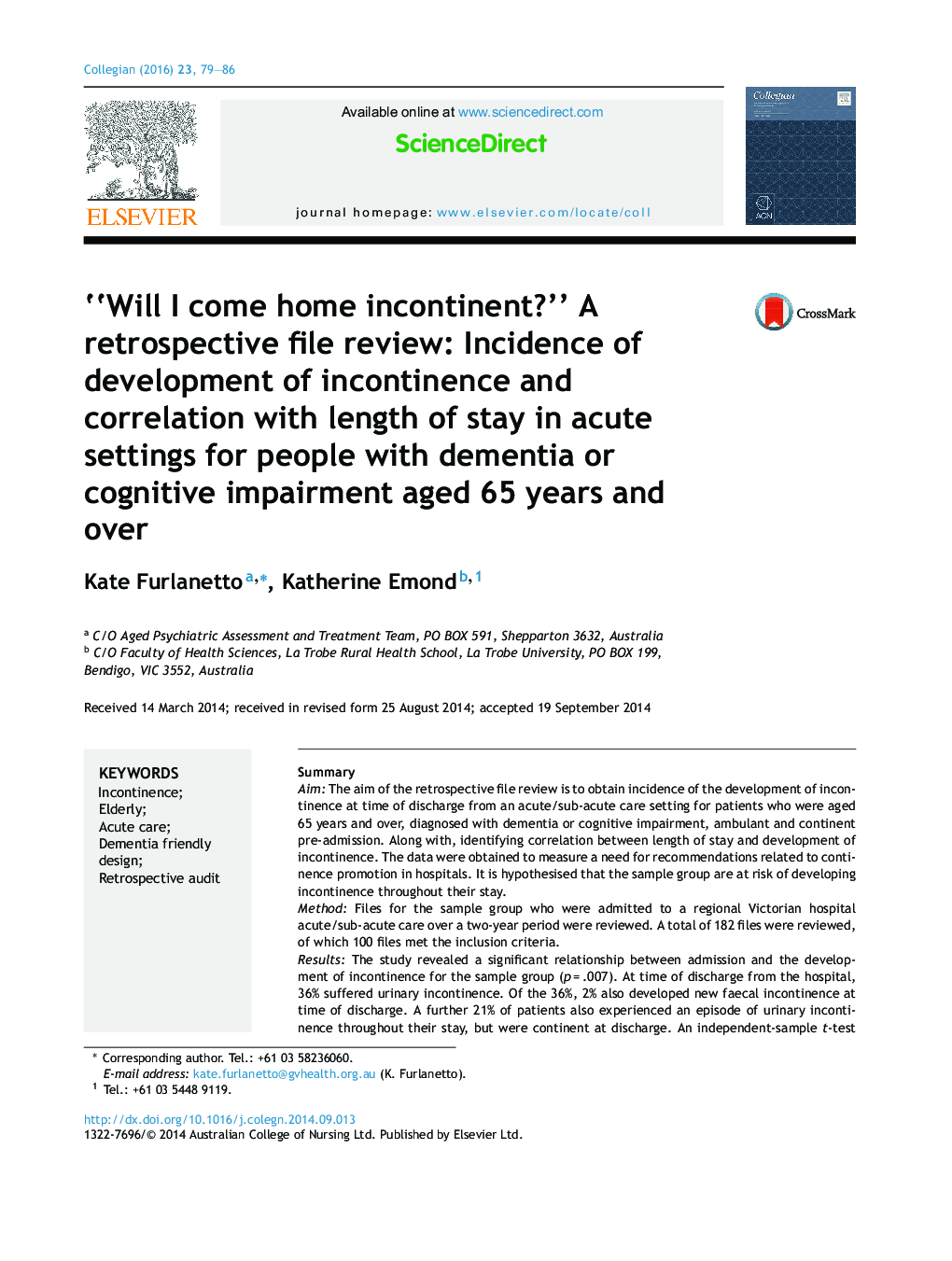| Article ID | Journal | Published Year | Pages | File Type |
|---|---|---|---|---|
| 2646115 | Collegian | 2016 | 8 Pages |
SummaryAimThe aim of the retrospective file review is to obtain incidence of the development of incontinence at time of discharge from an acute/sub-acute care setting for patients who were aged 65 years and over, diagnosed with dementia or cognitive impairment, ambulant and continent pre-admission. Along with, identifying correlation between length of stay and development of incontinence. The data were obtained to measure a need for recommendations related to continence promotion in hospitals. It is hypothesised that the sample group are at risk of developing incontinence throughout their stay.MethodFiles for the sample group who were admitted to a regional Victorian hospital acute/sub-acute care over a two-year period were reviewed. A total of 182 files were reviewed, of which 100 files met the inclusion criteria.ResultsThe study revealed a significant relationship between admission and the development of incontinence for the sample group (p = .007). At time of discharge from the hospital, 36% suffered urinary incontinence. Of the 36%, 2% also developed new faecal incontinence at time of discharge. A further 21% of patients also experienced an episode of urinary incontinence throughout their stay, but were continent at discharge. An independent-sample t-test was conducted to compare mean length of stay between the group that remained continent (M = 15.88, SD = 13.028) and the group that developed incontinence (M = 24.33, SD = 19.497); t(98) = 2.586, p = .011 (two-tailed).ConclusionStatistically significant results confirm the hypothesis’ that the; sample group are at significant risk of developing incontinence throughout a hospital admission, and increased length of stay increases the likelihood of developing a form of incontinence.
